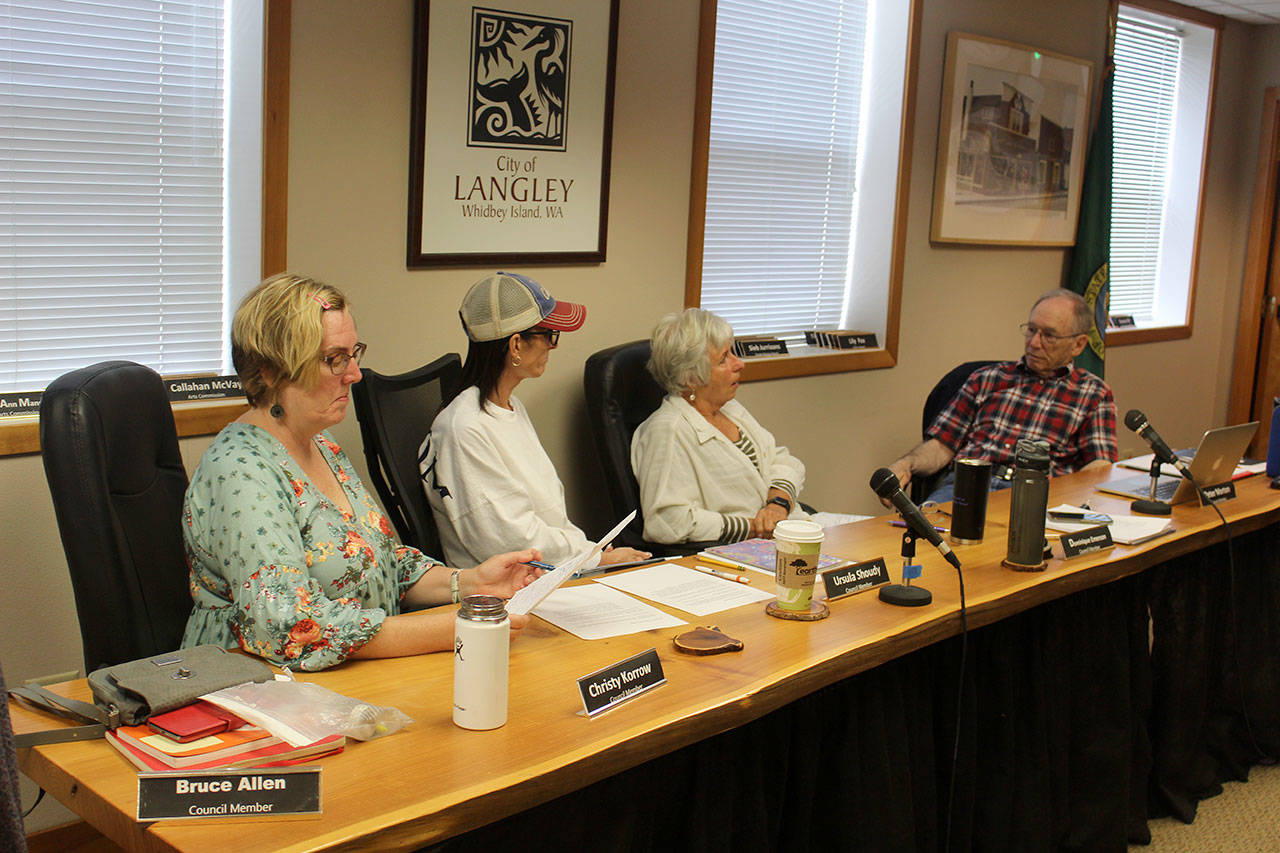While the firing of Langley’s police chief on Monday may satisfy his critics, city officials must now address the mistrust, anger and uncertainty left in the wake of the drawn-out drama.
“There needs to be some healing with the community,” Councilman Peter Morton said at a Monday morning workshop to review the city’s police policy manual. It occurred prior to Mayor Tim Callison announcing his decision to fire Police Chief David Marks.
The council is holding a series of workshops to review the 400-plus page police policy manual and review systematic flaws exposed during the controversy.
They set three actions to tackle first. They are going to consider how to improve the complaint process for citizens, gather input from other small cities with similar experiences and develop a community survey on local law enforcement.
Marks, a member of the Langley police force since 2006, was investigated for using excessive force when arresting a mentally ill man last November. The investigation unleashed numerous other allegations from citizens who accused Marks of being vocally abusive and a bully with an explosive temper.
One instance involved a local minister who described his encounter with Marks in a letter that a council member read at a June meeting. During a traffic stop involving a trailer, Marks is alleged to have yelled at the driver that he had been warned numerous times not to use the trailer because it wasn’t licensed.
When the driver informed Marks that wasn’t true, and inquired why he was being harassed, the police chief is alleged to have threatened him with jail.
Council members said they’d been inundated with similar complaints about Marks’ aggressive behavior, but just in recent weeks.
When they asked residents why official complaints weren’t filed sooner, some replied they’d been told by city hall staff that no complaint forms existed, others said they didn’t want to register a complaint for fear of retaliation.
“Staff education is needed,” Councilwoman Dominique Emerson emphasized. “They didn’t even know about the complaint forms.”
Fixing the complaint system, and allowing for confidentiality, is a top priority.
“Langley has to find a way that citizens can submit comments and complaints about the city, including the police chief, without any fear of reprisal,” Morton said. Had there been a better system in place, Morton said, it “could have nipped this in the bud.”
Lack of oversight of the police chief was also discussed.
Callison pointed out that a “very obvious gap” existed in the city’s police policy manual. No provision exists, he said, for dealing with complaints about the chief of police.
He explained that’s why he chose the Washington State Patrol to investigate the November allegation as a criminal matter. Callison suggested a third party reviewer be chosen in advance should the situation occur again.
Council members took Callison to task for not informing them immediately about the investigation into Marks.
“The minute you go outside for investigation of staff personnel, the council needs to be apprised,” Emerson said.
The council repeatedly returned to the subject of restoring the public’s faith in local government and law enforcement.
“We have to build that trust, we have to acknowledge it,” said council member Ursula Shoudy. “It’s our job to build up the trust again.”
• The next police policy workshop is 9 a.m., Tuesday, July 17; it’s open to the public.



